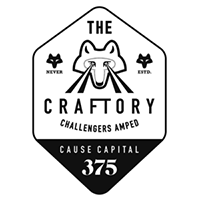Corporate Venture Capital: Advantages & Disadvantages
Corporate venture capital can be an attractive option, especially if you’re looking for innovation expertise, network access and long term strategic support. But isn’t right for every business. Here’s our take on the advantages and disadvantages of corporate venture capital - written as always, with ambitious, cause-driven entrepreneurs in mind.
First let’s look at some of the advantages of taking corporate venture capital:
Long term view
The trans national consumer goods companies have been at it for a century (even longer in some cases). One could argue this empowers them with deep reserves of experience, strategic wisdom, and great patience. When it comes to venture capital they are experts at playing the long game, tracking macro trends in culture and the global economy. A good deal with a wise and generous corporate sponsor can be extremely appealing to an entrepreneur looking to take their business to the next level.
Access to networks
Corporate VC investors have extensive infrastructure networks in place that your brand can access quickly: Suppliers, manufacturers, distribution, retail and of course the customers who shop those retailers. This can represent an incredible fast track for growth.
Industrial knowledge
Compared to traditional venture capitalists corporate investors employ teams of experts that naturally accompany all those networks and infrastructure.
Trans national consumer goods companies usually have R&D facilities in-house, as well as category experts on retainer. By joining a corporate venture capital portfolio you’re potentially getting access to a huge and multifaceted knowledge base. There’s evidence to show the hot brands in the portfolio get the exciting innovations first (years before they inevitably cascade down to the mass brands).
Deep pockets
Once part of a corporate VC brand portfolio, and assuming your business is growth is on-track, further investment should be easier to achieve. Spending less time organising future investment potentially liberates you and your leadership team to focus on other priorities - thereby unlocking a virtuous circle.
At face-value corporate investment can look like a compelling prospect. So what are some of the disadvantages of corporate venture capital?
Top level sponsorship is essential
The network advantage is only made real if you have an influential, inhouse sponsor on your side. You’re going to need someone with real clout looking out for you all the time.
The extended tenure of staff in corporates mean you could get lumbered with an out-of-touch old timer, someone who’s been around so long they can’t be fired without a massive golden parachute. Then there are the players, the ones who are only interested in climbing the greasy pole as quickly as possible. What they lack in real business acumen they more than make up for with blind arrogance and self interest. Both can be toxic for you business.
When fundraising with a corporate venture capital fund it’s a good idea to ask to speak with former investments. You’re looking to work with someone who can make in-line (and often siloed) managers cooperate to your advantage. It’s a machine, a system you’re going to have to learn fast.
Siloed culture
All too frequently the business units inside large corporates are so decentralised they become focused on their own operational goals, rather than seeing the bigger picture or spotting opportunities. This can stop an innovative new business in its tracks. Let’s be clear: most operational staff have not been hired to think about radical strategy.
Glacial speed limit
Corporates are famous for being slow moving. From R&D, product development, thought to retail deals: We’re talking about layers of bureaucracy, numerous stakeholders with big egos and little of real value to add, legacy deals that can’t be flexed or run around.
Then there's the 9 to 5 mentality so common in large organisations. Talk to any hungry entrepreneur and they’re tell you 9 to 5 is a joke, but you won’t be able to drag them up to your pace, you’re going to have to slow down to theirs.
All this can be frustrating, but it also represents a real business risk: First mover advantage? What’s that?
Mutual exclusivity
The large trans-national corporate investors hate sharing and have a history of being suspicious of each other: It’s because they’re locked into a decades long, ruthless competition. They scrutinize each other, copy each other, obsess over the other’s numbers relentlessly looking for insights and edge. Never forget: The default position is mutual suspicion.
If you take money from a corporate investor the industry expectation is that you now belong to that corporate. Take even a small stake and you’ll struggle to raise money from any of the others. Trying talking to one of their competitors and the first question they ask is: ‘Why isn’t your original corporate venture capital investor investing more?’. They will assume/leverage you by saying there must be a flaw in your business, and the other guys have spotted it - leaving you stuck for money and under their thumb. Each of the big corporates know full well none of the others are going to touch you unless they invest more, this means you’re unlikely to get a fair price for your business from any of them.
Let’s get real: A corporate VC investor might not want you to do really well really fast, because that would make you more expensive to them in the future. Yes, it can get that cynical.
Brand portfolio game
The corporates usually work to yearly budget cycles. You’ll get 12 months to move the needle then the money moves elsewhere. If your growth isn't on track quickly and consistently they’ll lose interest. Similar to venture capitalists the corporates are playing a portfolio game too. A portfolio where you’re the smallest and likely under the most pressure to show growth. They need you to go fast so as to offset their slowly declining cash cow brands.
Innovation suck
Assuming for a moment you’re now part of a corporate VC portfolio and doing well, you should expect the innovative aspects of your product to be synthesised and watered down. Some of your innovations may survive but they’ll be shared with bigger brands with much larger budgets. Your uniqueness will be gone.
It’s good corporate business to homogenise products across multiple brands thereby limiting formulas, ingredients and costs. Historical data suggests that consumers didn’t notice small compromises made over time. More recent data suggests consumers hate it when they discover their preferred products have been compromised in this way. It’s no surprise customers can consider this a betrayal - inauthentic brands tend not to popular.
Tell us about your brandThe Craftory is different
The corporates want your brands because you’re stealing sales from one of their products. You’re siphoning away dollars that used to be theirs, and they want their money back. Whatever the underlying trends their answer is to buy new brands that threaten the status quo. They’re buying growth and defending their dominance.
The Craftory is different. We’ve designed our approach to cater for entrepreneurs who value their independence but want the benefits of being part of a family too.
As an investment partner we don’t require exclusivity (we do expect goals and values to be aligned across a cap table). With the Craftory there are no 12-month budget cycles. We believe scaling up your business should never compromise your cause or your quality. Not easy, but we believe it is possible to do well and do good. We like the brands in our family to share some things behind the scenes but only in a way that facilitates each brand’s uniqueness.
We prefer to look at your business holistically, and agree together where the challenges are - what it’s really going to take to achieve the growth we all want.
To find out more about our approach to growth capital, permanent capital and cause capital check out our short film exposing the dangers of taking corporate venture capital.
This post was co-written by JP Thurlow and Laura Tran.
JP is a Craft Partner and Laura is a Deal Crafter at The Craftory, the alternative investment house on a $300M mission to back the world's boldest CPG challenger brands.





